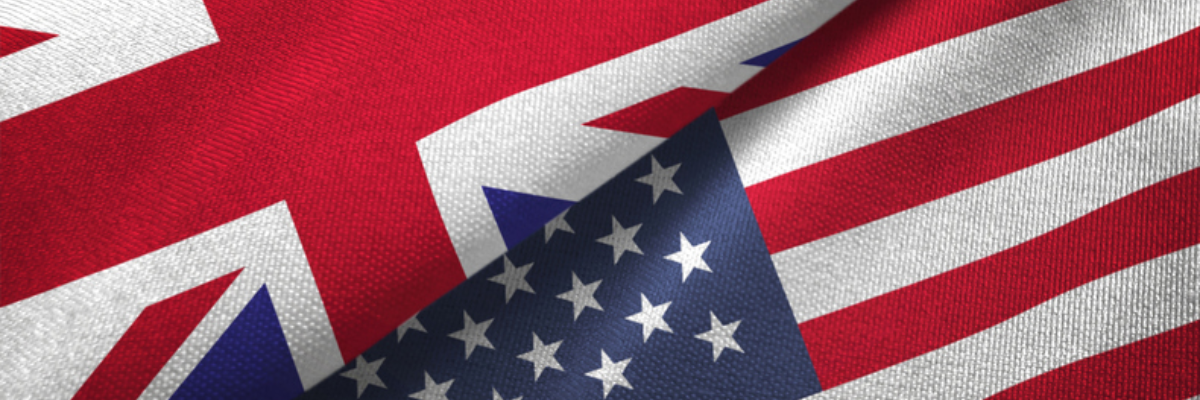Many people expected that in the new world Britain would be entering once it left the European Union our relationship with the United States would change and it would become even closer than the one we have had in the past. Indeed this closer relationship lay at the centre of the bright future Brexiteer campaigners promised and of the far less bright future warned about by Remainers, not exactly the greatest fans of Donald Trump. But now, just days away from Brexit actually happening, Boris Johnson’s pro-Brexit government is embroiled in a series of unresolved and potentially explosive disputes with the United States. Its stance seems closer to Brussels than to Washington. So what’s going on, and what should Britain’s relationship with America be after Brexit?
Among European countries, Britain has always been the closest to the United States. That’s partly a function of history: it was, after all, a group of British colonies on the American mainland that transformed itself via a war of independence into the world’s greatest power, the United States of America. There is the shared language of English. And there is the history of the twentieth-century in which the two countries fought alongside each other in two world wars in order (as some would put it) to save Europe from itself. The security system, NATO, that has prevailed in Europe ever since was essentially an Anglo-American construction.
So close to America was Britain deemed to be that in the 1960s the French president, Charles de Gaulle, used it as the justification to veto Britain’s attempt to join the European Economic Community, forerunner to the EU. And even after Britain did join, in 1973, some within the EU continued to regard Britain as a sort of Trojan horse for the US within the EU. Passionate integrationists on the continent, intent on turning the EU into a United States of Europe to rival the USA, saw Britain as a brake on their ambitions.
Conversely, some in Britain saw the country’s membership of the EU as a brake on their own ambition to have an even closer relationship with the US. The aspiration of the European integrationists to create a ‘European army’ and become a security union in its own right seemed to them to threaten NATO. And Britain ceding to the EU its right to conduct its own trade policy (a necessary condition of joining) seemed also an unwelcome and unacceptable constraint to those who wanted freer trade especially with the US. All this inspired the decades-long campaign to take Britain out of the EU. It was a campaign loudly endorsed in its latter stages by a new American president, Donald Trump. Among his ‘friends’ were Britain’s most determined anti-EU campaigner, Nigel Farage, leader at different times of both UKIP and the Brexit Party, and one Boris Johnson. No one was more pleased than Mr Trump when Mr Johnson became prime minister and only this week, in Davos, the President referred to the ‘wonderful new prime minister’.
It’s unsurprising, then, that everyone expected that Mr Johnson’s emphatic win in the December general election, putting Brexit beyond doubt, would lead Britain, in the cliché verb of the moment, to ‘pivot’ decisively towards America, especially on the economy and trade. Advocates presented a glorious free trade future, starting with a new trade deal with the US, and then with the wider world, to make up for any increased friction with our old EU partners. Sceptics warned of chlorinated chicken clogging supermarket shelves.
But this is not how things seem to be turning out. In at least five areas, London and Washington seem to be out of sync and London and Brussels much more in harmony.
The first of these is trade itself. President Trump has been boasting for months that a UK/US trade deal could be signed in months: the easiest thing in the world. He’s keen to secure one before the presidential election in November to prove that his controversial approach to trade issues is a winner. But Britain is saying ‘not so fast’. Among other things, the British side is apprehensive about what such a quick-fire deal might mean for British agriculture, currently highly protected. And it knows that its priority is protecting its much bigger export market in manufactures within the EU.
So at the Davos World Economic Forum on Wednesday the British chancellor, Sajid Javid, sitting alongside his American counterpart, Steven Mnuchin, said that ‘our first priority is getting an agreement with the EU’. This the government hopes to do by the end of the year, though most observers believe a comprehensive deal will take far longer. In any event, it will be way beyond November’s American presidential election. Mr Mnuchin remarked that he was ‘a little disappointed’ and he added: ‘It’s a big priority for us. We thought we’d go first. The EU might be a little harder to deal with than we are.’
If that exchange was conducted in courteous and moderate terms, the second issue of contention roused much sharper language. Britain, along with other countries and notably France, wants to do something about what it sees as digital services companies (mainly American) exploiting the ease with which they can register for tax in tax havens in order to dodge paying tax in the countries where their business is actually done. Google, for example, is reported have paid only £49.3m in corporation tax in Britain in 2018 against total UK sales of £5.7bn. International negotiations are underway to agree a new system to rectify this anomaly, but with 135 countries involved it’s taking forever. So both France and Britain have announced that they will each impose their own tax pending international agreement.
Britain’s 2% sales duty is due to be imposed in April and in Davos Mr Javid repeated the government’s intention to go ahead. He said: ‘It’s important – as we said at the time when we first introduced it to parliament and legislated for it – it is proportionate tax’. But Mr Mnuchin immediately hit back. He said: ‘If people want to just arbitrarily put taxes on our digital companies, we will consider arbitrarily putting taxes on car companies.’ Since the British car industry exports over 80% of its product, a fifth of which goes to the US, this is a very real threat, especially as the Trump administration has repeatedly shown its willingness to impose tariffs against any country that doesn’t do as it wants. Some hope that a truce might be struck, such as the one France and the US agreed this week, in which France would assess but not actually collect the tax, pending the outcome of the international talks. But the spat indicates both the strength of feeling on both sides, the readiness of each to confront the other, and the seeming willingness of the British government not to cave in to Washington.
This seems to be the case on another issue. Next week the government looks all but certain to give the go-ahead for the Chinese tech company, Huawei, to be involved in the development of the 5G network in Britain despite loud protest from Washington that this would entail a security risk. The American government has gone as far as calling this ‘madness’ and threatens to restrict British access to intelligence via the ‘Five Eyes Club’ of the US, UK, Canada, Australia and New Zealand. Australia acquiesced under such pressure some time ago. Britain insists that Huawei will be involved only in ‘non-core’ aspects of 5G development, but the US is not persuaded. The conflict could lead to a partial breakdown in what has always lain at the heart of the US/UK relationship: security and intelligence.
The two countries are at loggerheads too over probably the most acute security and foreign policy issue facing the world: what to do about Iran. Boris Johnson has persisted with Theresa May’s policy of trying to sustain the deal agreed with Iran under the Obama presidency to constrain any ambitions it might have to attain nuclear weapons, a deal Mr Trump ripped up. When the American president authorised the assassination of an Iranian general earlier this month, Mr Johnson adopted essentially the same position as his European counterparts in failing unequivocally to support it, earning a rebuke, along with those counterparts, from the American secretary of state, Mike Pompeo, for not being ‘helpful’.
Add to this the utterly divergent positions between the two countries on climate change and the deep resentment felt in Britain from the government down, at the refusal of Washington to agree the extradition of Anne Sacoolas, an American alleged to have caused the death of Harry Dunn in a road accident outside an RAF base in Northamptonshire last August and who then left the country claiming diplomatic immunity, and it’s clear that the plan for a closer relationship with the US after Brexit isn’t off to a good start.
As Lord Ricketts, the former head of the Diplomatic Service, put it in a letter to The Times on Friday: ‘The new government is finding that independent foreign policy is an unending series of hard choices. London and Washington still have a unique partnership in defence and intelligence. Yet on all the hot-button international issues – from Iran to free trade and the climate – Britain is much closer to the European approach.’
Remainers will, of course, say ‘told you so’. But that issue is resolved: Britain will quit the EU in a week’s time. Yet it leaves an unresolved question. Should Britain remain ‘much closer to the European approach’, in Lord Ricketts’ phrase? Or should we move much closer to the American approach, with all the compromises to American interests that that would now seem necessarily to involve?
What’s your view? Let us know what you think.













